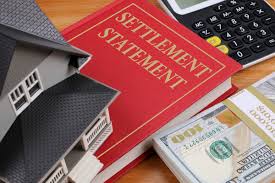Having full knowledge of any type of investment will always give you an edge, especially as someone in the business sector. Whether you’re a landowner that rents out your property or not, this article will add to your knowledge bank. Hence, we’ll be looking at the difference between the two (fee simple vs leasehold) and (what title fee simple vs leasehold ownership is in Hawaii).
Fee Simple vs. Leasehold
We’ll be looking at each definition to better understand the difference between the two.
Title Fee Simple vs. Leasehold Ownership: Fee Simple
Most residential property purchasers are likely to be conversant with the tile fee simple ownership and not really leasehold. You may not be aware of any other means to own real estate in your area. Since it is the most comprehensive form of ownership, you can also refer fee simple as fee simple absolute. A fee simple purchaser receives perpetual title (ownership) of the property. Which comprises the property and any additions to the property. However, in some cases, no one can lawfully remove that real estate from a fee simple owner. The fee simple owner has the power to hold, use, and deal with the land as he sees fit. Meaning that he can sell, donate, or exchange it.
Title Fee Simple vs Leasehold Ownership: Do Lenders Care About Fee Simple?
Of course, they care about it. When underwriters evaluate loan feasibility, single-family properties with fee simple ownership rank the highest and also the best because there are fewer risks or items to consider. For a lender’s reasons, fee simple townhomes are considered the second highest and best.
Condominiums and future developments with leasehold rights, on the other hand, are the biggest gamble. And are the least probable to occur in a loan from most mortgage lenders. Because even for larger financial organizations getting clearance for a condominium or future development is generally more challenging.
Title Fee Simple vs Leasehold Ownership: The Difference
The most basic difference between the title fee simple vs leasehold ownership is that you own real estate forever. The decision between title fee simple ownership and a leasehold arrangement is influenced by the individual and the property’s intended usage. In many circumstances, homebuyers in the United States prefer fee simple ownership since it provides them with full ownership rights and the flexibility to sell the property as a whole.
When the property is for business purposes, a leasehold is generally preferable over fee simple ownership. Most firms and individuals (company owners) will not be in a situation where they wish to own real estate and manage a business.
The Drawbacks of Fee Simple Ownership
Although fee simple ownership has many advantages, there are a few drawbacks to consider.
For many people, fee simple ownership is more work than it is good enough to justify. For instance, an HOA-governed townhouse or joint property may require extensive maintenance work such as repainting or interior door repairs. The chances are that no single person in the townhome will want sole responsibility for fixing the property to HOA standards.
In such a case, most people will find leasehold ownership to be more flexible and profitable. Generally, if a property requires a lot of effort and is mostly shared, fee simple ownership may not be as appealing.
Fee Simple vs Leasehold Ownership: Leasehold Ownership
A leasehold interest is generated when a fee simple landowner (lessor) engages in a ground lease arrangement or agreement with an individual or organization (lessee). A lessee pays the lessor for permission to use and enjoy the land in the same way that one buys fee simple rights. Nevertheless, the leasehold interest varies from the fee simple interest in several crucial ways.
Firstly, the purchaser of leasehold real estate does not own the property; they simply have the right to use it for a set period of time. Secondly, if a leasehold property is changing to a different owner, then the new landlord’s use of the property is limited to the rest of the original lease.
The property goes right back to the lessor after the end of the specific timeframe, which is reversion. The structures and other modifications on the property may also return to the lessor, based on the conditions of any submission clause in the lease. Lastly, the usage, maintenance, and change of the rental property are subject to any rental limitations.
Fee Simple Vs Leasehold Ownership: Benefits of Leasehold Real Estate
Despite its obvious limits, leasehold real estate has various benefits too, including:
- Lessees often pay substantially less for leasehold properties, especially in comparison to the 20% customary down payment required for fee simple ownership.
- Lessees can also sell their leases to third parties without the lessor’s authorization, which is quite prevalent in commercial property.
- Leasehold ownership often costs landlords a fraction of what it would take to enter the mainstream real estate investment market.
- Lengthy leasehold leases may offer lessees relatively consistent, reasonable rental rates for up to decades down the line, making them perfect for residents on fixed-term contracts.
- Lessors can sell their residual interest in their property, which could produce awesome opportunities.
Fee Simple Vs Leasehold Ownership: The Drawbacks of Leasehold
There are a few notable drawbacks to leasehold real estate investment, including:
- A leasehold estate’s incapacity to build equity. Lessees have no ownership of the property after the completion of a leasehold agreement and must start over.
- The value of the land continues to deteriorate with each year of the lease.
- If a leasehold agreement has less than 8 years left, the lessee will almost always need to locate a cash buyer since financing for leasehold leases with less than 8 years remaining is extremely rare.
- There are always HOA costs in addition to the lease payment, which might have an impact on a lessee’s bottom line.
Fee Simple vs Leasehold Hawaii
A leasehold vs fee simple title in Hawaii. A leasehold estate in Hawaii is one in which the owner, or lessor, leases real estate to a buyer, or lessee, for a certain period of time.
Fee Simple vs Leasehold Hawaii: Leasehold
Hawaii leasehold properties are generally less costly, and prices for leasehold estates tend to decline as the lease term approaches its end. There are occasionally possibilities for leasehold owners to purchase the remaining fee interest in the land for a large sum, converting the land status or to fee simple absolute.
The landowner, or lessor, is typically a huge royal trust, a family, or an individual who has to choose to preserve ownership of the land and produce revenue from it rather than sell it. Leasehold property owners in Hawaii have the following rights:
- They can sell the fee or landownership to the homeowners, simplifying the land fee.
- Prolonging their lease offering forever, frequently renegotiating leases for 15 to 30 years.
- They have the right to remove the property and any other constructions on the property after the lease expires.
Fee Simple vs Leasehold Hawaii: Fee Simple
Fee simple ownership in Hawaii is a type of ownership in which a buyer buys a real estate property altogether and has the right to use it perpetually. Unlike leasehold estates, there is no time limit on the usage of the property with fee simple ownership. The owner of a Hawaii fee simple property would pay off the mortgage, real estate taxes, club or ongoing maintenance, and any other costs linked with the property. A fee simple property owner can sell, lease, will, or exchange the property.
In Hawaii, fee simple real estate is generally more expensive; even so, it is normally easier to obtain financing than leasehold transactions.
Fee Simple vs Leasehold Hawaii: leasehold property in Hawaii
A fee simple property is more appealing and cost-effective for most house buyers, permitting the owner to create equity. Leasehold estates, on the other hand, may make sense for the following sorts of buyers.
#1. Investor
An investor may have an interest in leasing a leasehold Hawaii property than fee simple. Leasehold real estate usually has modest price points, and an investor may choose to rent out the property to create monthly cash flow. In addition, if an investor owns many leasehold properties in the same building, operational costs will reduce. And the owner has a more significant say in the building’s policies. Some investors have also rented out leasehold houses to college kids.
#2. Lifestyle Purchasers
Lifestyle purchasers may choose to select a leasehold estate for the comfort and elegance of living. Although first-time homebuyers in Hawaii may be drawn to leaseholds due to their low cost. However, most real estate professionals will encourage them to purchase a fee simple property in order to create equity.
A leasehold condo or home in Hawaii, on the other hand, may sound right for buyers who already have productive assets and are merely looking to enjoy the Hawaii beautiful lifestyle.
#3. Seniors
Seniors looking to downsize may wish to consider a leasehold estate. They have a set income, and leaseholds are less expensive than fee-simple estates. Condos provide stunning views and convenient access to medical care. But, potential leasehold property lessees should examine the lease period, since they don’t want to outlast the lease and be caught in housing uncertainty.
Purchase of a leasehold apartment in a luxury condo along the Gold Coast of Waikiki or Kahala would provide them with a luxurious lifestyle at a quarter of the cost. They would spend as little as monthly rent and less than a mortgage payment. Guess it depends on how much time the lessees would like to spend in Hawaii.
How to know if your property is fee simple or a leasehold
Are you unsure whether your property is fee simple or leasehold? Consider the following examples:
- The overwhelming majority of single-family houses are fee simple.
- The majority of condominiums are leasehold rather than fee simple.
- Co-ops aren’t always fee simple, but they’re also not always leasehold. They are officially neither leasehold nor fee simple.
- If the house is in development planning, or PUD, it is likely that leasehold ownership is used rather than fee simple ownership.
- Homes in gated communities might be fee simple or leasehold, according to the community’s contract terms.
- In most cases, townhomes are fee simple. Nevertheless, if the town-known development is part of a homeowner’s organization. Then they may still be eligible to keep maintenance which is quite similar to a leasehold
Fee Simple vs Fee simple Absolute properties
The terms “fee simple” and “fee simple absolute” are sometimes used interchangeably, although there is a legal unusual distinction.
Fee simple absolute owners of real estate can pass properties to heirs while putting conditions in place to guarantee the original owner’s wishes are followed. Let’s have a look at an example. An owner leaves his or her estate to a child on the condition that the youngster becomes more responsible by the age of 25. The father was a fee simple absolute owner, and until he/she shows responsibility, the child is merely a fee simple owner.
If the child wishes to sell the property before age 30, they cannot pass it to the prospective buyer in fee simple absolute. Be aware of the performance of the title search performance by a title insurance provider. And it does not guarantee that the buyer will be safe from potential lawsuits by the estate or other heirs.
What Ownership Is Closest to Fee Simple?
The majority of residential real estate in America is held in fee simple ownership. Less than half of all home transactions are for leasehold ownership. In a leasehold arrangement, one party owns the property while the renter has access to it for a predetermined period of In a leasehold arrangement, one party owns the property while the renter has access to it for a predetermined period of
Why Is It Called a Fee Simple?
In real estate, the word “fee simple” refers to complete, unrevocable ownership of the ground and any buildings on it. The greatest form of ownership is fee simple, which denotes that the property is owned outright and subject only to local zoning regulations.
Is Fee Simple a Good Thing?
The greatest form of ownership is fee simple, which denotes that the property is owned outright and subject only to local zoning regulations.
In actuality, having a fee simple estate is advantageous when it comes to real estate ownership. It indicates that you are the only one who has legal ownership of the property. Numerous sources claim that in common-law nations, it is the highest type of land ownership.
Does Fee Simple Imply Mineral Rights Ownership?
Fee For an indeterminate period of time, simple ownership denotes having complete control over all facets of a property. The surface and underground mineral rights are both owned by the fee owner. Leases for minerals or oil and gas can therefore be granted by fee simple owners.
Leases for minerals or oil and gas can therefore be granted by fee simple owners.
What Does Fee Simple Mean in Home Ownership?
Fee simple, then, refers to the greatest possible ownership stake in the property, which is unqualified, unbounded in time, freely transferable, and inheritable. The law mandates that we utilize the property’s “unencumbered fee simple” value when the qualified appraisers of the assessor’s office value it for property tax purposes.
The law mandates that we utilize the property’s “unencumbered fee simple” value when the qualified appraisers of the assessor’s office value it for property tax purposes.
Is it Better to Have a Leasehold or a Freehold?
Generally speaking, leasehold homes are less expensive than freehold homes. But the risks involved are the reason for this. Less accountability: The freeholder often oversees building and common area maintenance as well as insurance for buildings.
Can a Property be Both leasehold and Fee Simple?
An owner of a cross lease receives a composite title. On one title, it displays a combined fee simple interest and a leasehold interest. The underpinning land and structures are jointly owned by you and your neighbor. It is an undivided share of that ownership.
Conclusion
The most basic difference between the title fee simple vs leasehold ownership is that you own real estate forever. The decision between fee simple ownership and a leasehold arrangement is influenced by the individual and the property’s intended usage.
FEE SIMPLE VS LEASEHOLD FAQ
Why is it called fee simple?
Fee simple is a legal concept in real estate that refers to complete and irreversible ownership of land and any structures on that land. The greatest kind of ownership is fee simple.
Why is fee simple important to businesses?
The owner has complete pleasure and authority over the property with fee simple ownership. Fee simple owners can encumber the asset as collateral for loans and leave it to a beneficiary in a will. However, they can’t contravene the law or municipal ordinances on or within the asset.
Is a fee simple absolute estate perpetual?
The fee simple absolute estate is a perpetual estate that is not constrained by specified or limited uses. It can also be freely transferred to heirs. As a result of these factors, the fee simple absolute estate is the most attractive estate in residential property.
- Lease Accounting: Classification & Guide to the New Accounting Standards
- EQUIPMENT LEASING: Benefits, Types, Costs & Complete Guide
- A Look Into Search Engine History: An Advertising Guide
- Active Investing vs. Passive: Understanding Why You Need Both (+Detailed Guide)
- OWNERSHIP INTEREST: Top Guide To Ownership Interest
- FEE SIMPLE: Definition, Examples & What You Need
- REGULATION Z REAL ESTATE: Definition & How It Affects Credit






